Chicken Health problems are what keep us, the chicken keepers, checked into reality and help us prepare for the worst that happens with all of the chickens, they die.
What we at the typesofchicken.com team want to do with this article is to inform you of the 10 Most Common Chicken Health Problems And Solutions so that you can have a better life as a chicken keeper.
We hope that this list will help you learn something and prolong the lives of your chicken. Of course, it helps a lot if you are aware that some situations require assistance from your vet so don’t delete his number yet.
1. Molting
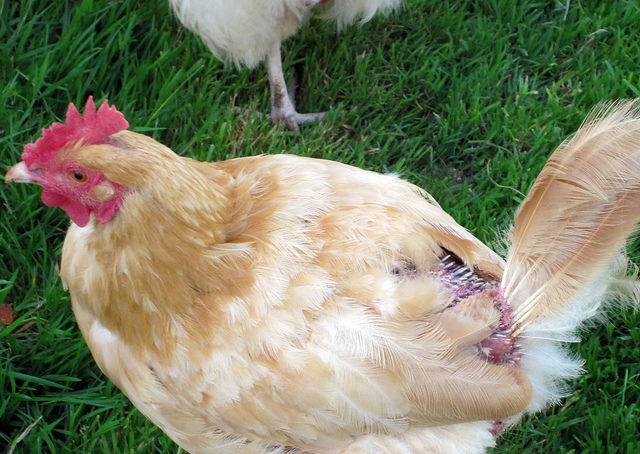
Maybe one of the most common problems with every chicken, molting has been known to disturb every chicken keeper’s day.
However, molting is normal – after a year or so of laying eggs every hen`s immune system gets weak and that is why this occurs. When the feathers of your hen’s neck start falling, the feathers start losing their shine and the calcium level drops it is most likely that the molting process is about to start.
Stress, sudden weather changes, and dehydration can also cause molting.
Solution:
Molting happens. There is not a thing that you can do to prevent it. However, what you can do about molting is to make the process a lot easier for your chicken.
Add more vitamins to your chicken`s diet, mealworms for protein, and grit or crushed eggshells for calcium. Try not to cause sudden movements because molting causes the body of the chickens to be a lot weaker which means that you can hurt them unintentionally.
2. Eye Problems
Eye problems with my chickens were the thing that surprised me the most about the common health problems with my chickens.
They occur more often than you can imagine, due to the high chances of dust sparks or some small flying object finding their way into your chicken`s eyes.
You cannot stop this because eye problems occur during pecking and it is normal that it happens regularly.
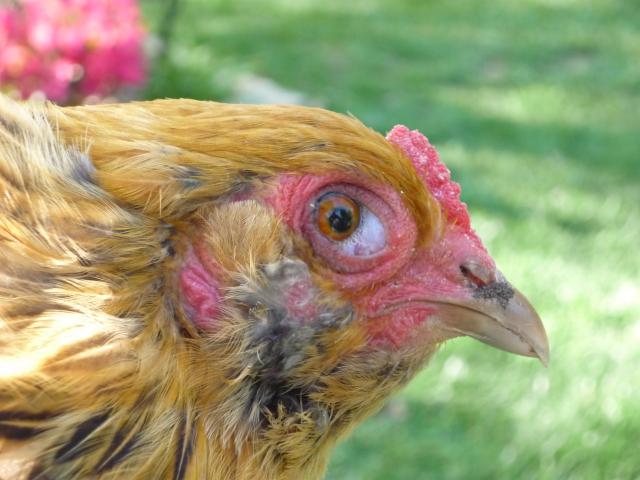
Chickens that act disorientated and start separating from the flock need to be checked up around the eyes, if you notice scratches it means that they have an eye problem.
Solution
First and most important, check if the problem resides only in their eyes, because weeping and some discharge from the nose may indicate that your chicken has a cold or even some more serious illness.
If you only notice the eye problem what you can do is put warm tea bags on your chicken`s eyes two times a day. There is veterinary eye balm available almost everywhere so kindly get some.
It is important that you know that if eye problems occur with more of your chickens at the same time – it is time to visit the vet and get your chickens some professional help.
3. Mites
This is one of the health problems that you can prevent easier than that you can cure.
Mites don’t have a point of origin and if they appear once – it may take them a year or more to occur again.
To see if there are mites in your coop and your chickens, you can gently lift the feathers and check for small grey (if they have not drawn blood yet) dots on the skin of your chicken or during the nightstick your hand in the nesting box and wait for some time for them to crawl up your skin.
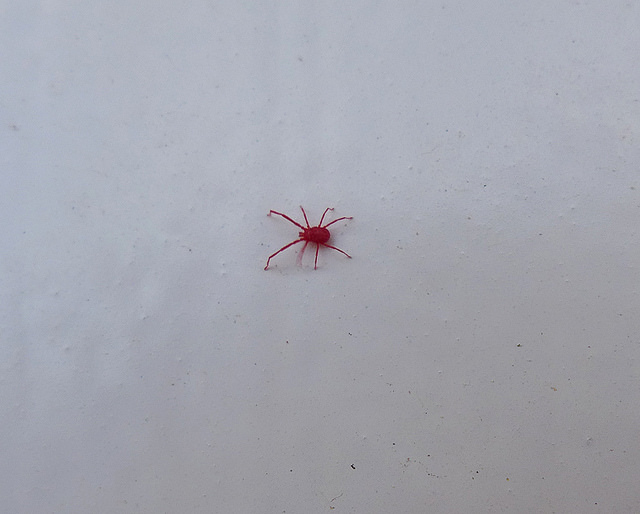
Solution
It is no secret that mites can be prevented.
By regularly cleaning your coop and bathing your chickens you will have less and fewer chances that mites appear around your coop and therefore your chickens.
Mites don’t like dust, ashes, and vinegar.
Regular dust baths, and also if you include vinegar in the processes of cleaning your coop and bathing your chicken – you will most likely
Read more about 4 Steps For Cleaning Your Chicken Coop The Natural Way Read more about How to Bathe a Chicken Properly!
4. Cannibalism
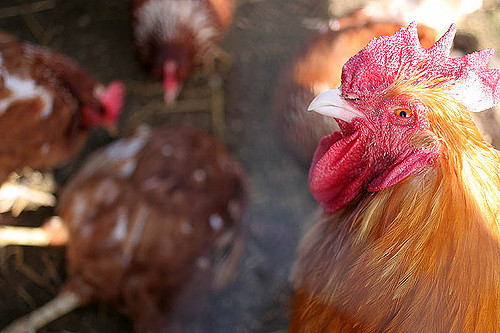
Unfortunately, cannibalism can occur in your flock, and trust me it is not a good sight but a very, very disturbing one.
Feeding chicken meat to your chickens, chickens over-bullying each other, not feeding your chickens regularly, or if your chickens don’t get their exercise – all of these can lead to cannibalism.
Solution:
In order to stop cannibalism from occurring in your flock, you not only need to know what to feed your chickens – but also what NOT to feed them.
Making sure that your chickens are entertained and friendly may also prevent cannibalism in your flock.
It is very important for you to understand the difference between bullying and cannibalism – bullying leads to sad chickens, cannibalism leads to dead chickens.
Read More About 10 Things you should NOT feed your chicken. Read More About How To Keep Your Chickens Entertained
5. Egg Abnormalities
Misshaped eggs are the problem that almost every chicken keeper has but does not want to talk about it.
It is a very disturbing feeling when you get a misshaped, soft egg in your hand it is like your hen can feel your disappointment.
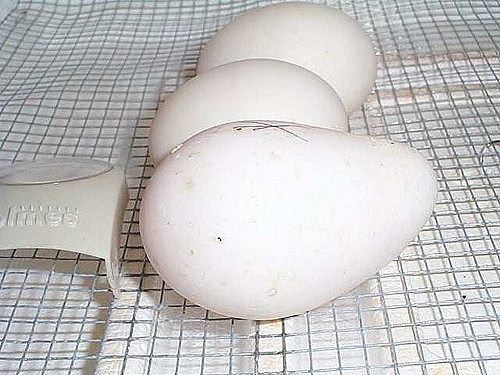
Soft eggshells are the earliest indication of egg abnormalities so if you notice that some of your hens are starting to lay soft-shelled eggs make sure that you make the changes that can prevent this from happening again.
Egg abnormalities cause prolapse which will be discussed lower on this list.
Solution
There are diets that can prevent this from happening.
You need to be aware of what to feed your chickens to get the best eggs and to make sure that your chickens get a sufficient amount of calcium as soon as possible.
Also, check up on your grit, maybe it got wet without you noticing and that can reduce the whole purpose of the grit and even affect negatively the health of your chickens and their eggs.
Too much grit can also lead to some stomach problems so make sure that you keep your chicken’s diet healthy and diverse. As we said before – baked crushed eggshells can be a sufficient replacement for chicken grit and it is a good idea if you start using this method.
Read More About What To Feed Your Chickens To Get The Best Eggs
6. Hurt Legs
Although it is highly recommended that you let your chickens run as much as possible, it is also highly recommended that you check up on their legs and feet every few days.
If your chickens enjoy running and pecking and they have an open wound the chances are that the wound will get infected. And it is never good when wounds get infected because many infections are not curable.
Signs of a broken leg can be if your chicken is crippling or slower than usual.
Solution
If your chicken has a wound that is opened a good idea is to wash the wound using a wet and warm towel or washcloth, or just dipping the legs in a mixture of warm water and vinegar before closing the wound with some small bandage.
Warm water and vinegar will help the wound clean better and disinfect it. However, if you notice a broken leg in your chicken it is best that you consult your local vet.
And as we mentioned before, make sure that you check up on your chickens every few days of running.
7. Prolapse
Prolapse is the most disgusting health problem on this list next to cannibalism.
Prolapse can happen before the process of molting or when the hen gets older.
So, Prolapse can be caused when the hen is laying larger eggs and that causes the oviduct to stretch.
Egg abnormalities cause problems with hens that are passing them. The result of the oviduct stretching and the hen trying to pass the egg may be the oviduct going out with the egg.
Solution
Calling your local vet to stitch up the oviduct may not be the permanent solution because it is very likely that when the hen starts laying again the stitches will break.
Many chicken keepers use the procedure of separating the hen in prolapse and using rubber or nylon gloves to put the oviduct back in.
The oviduct will most likely pop back up in the next few minutes so the process is repeated.
However, a better solution is calling the vet. To prevent the prolapse from happening make sure that you keep a balanced diet for your chickens and that your chickens get enough sunlight because sunlight holds a crucial part in a hen`s reproductive process.
8. Cramps
Cramps can be often mistaken for hurt legs and novice chicken keepers tend to overreact to this problem.
If there is no wound, when you stretch the legs of your chicken if the chicken does not respond with a sound of great agony ( you`ll know it when you hear it ) it means that the leg is broken. But if the chicken only slowly struggles it means that it is a cramp.
Solution
To help your chicken with its cramp it is best that you massage the leg with a cramp with warm water before and after your chicken goes on a run.
Slowly massaging the leg will help it relax and get back to normal in no time.
9. Feather Loss
Feather loss is a very common issue with any flock. There are many reasons for feather loss in chickens such as bullying, vent pecking, lack of protein, etc.
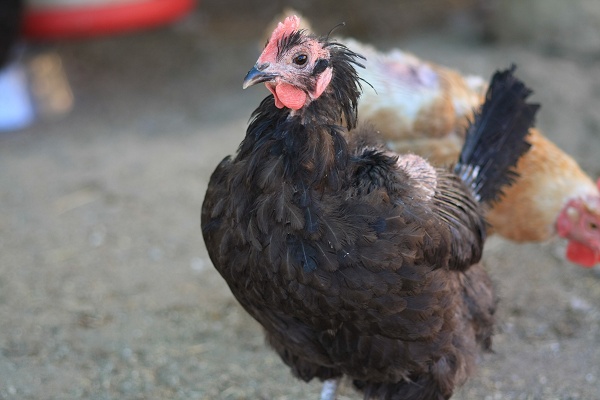
Maybe the easiest problem to see from all of the above, as many reasons for feather loss there are as many solutions to the problem.
Solution
To prevent feather loss in chickens there is one thing that you must do, observe and access the situation. Once you notice the cause of this problem it will be easier for you to solve it.
For example, you can prevent bullying by making sure that your chickens waste enough energy. Chickens see protein in feathers so if you find that lack of protein is the cause of the feather loss in your chickens, make sure that you update their diet with more mealworms.
To stop and prevent feather loss make sure that you notice what the cause is.
Read More About Top 4 Reasons For Feather Loss In Chickens
10. Immune System Failure
Even a small failure of the immune system of your chickens can cause even the worst illnesses.
Every chicken keeper has lost a chicken or more due their immune system failing.
It is important for you to know when more serious issues occur that you need to be fast in calling the vet.
Solution
If you notice the symptoms of any illness or your chickens get lazy and tire quickly don’t waste time and contact your chicken supplier or your local vet. This is the best thing you can do for your ill chicken.
Do you agree with our list? Make sure that you contact us through the comment section or via e-mail: support@typesofchicken.com
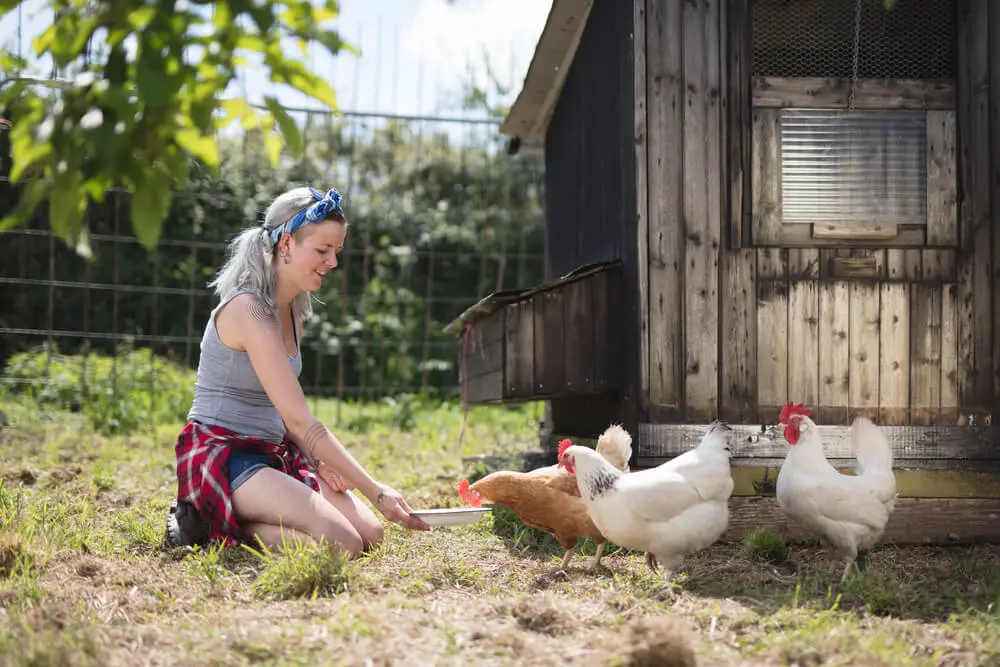
Shannon Stansberry has been engaged in the business of raising chickens for more than 12 years. In 2016, she accomplished the Agriculture & Natural Resources program at Mt. San Antonio College. At present, she tends to more than 80 chickens on her 4-hectare farm. Shannon regularly shares her insights and experience on how to raise healthy and contented chickens on the platform Typesofchickens.com
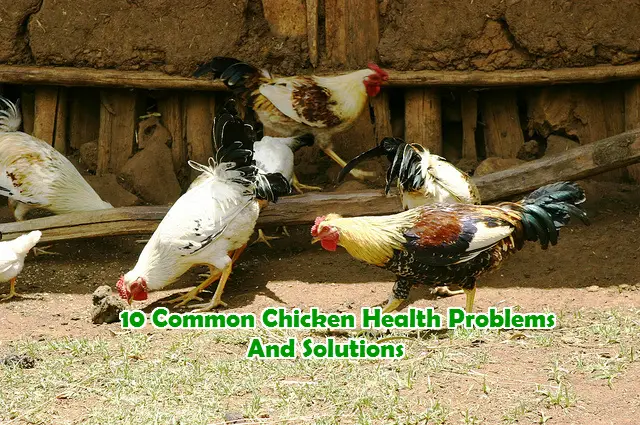

I really enjoyed the article. I learned a lot of stuff that I didn’t know before. I was in my teens the last time I had chickens. We usually got about 100 chicks twice a year and I don’t remember any of this sorta stuff. So I am really up to any post you can send me,
Hello Becky
Thank you for the feedback. We strive to give a usefull information.
Have a great day.
Barbu d’Uccle Lover
I have a chicken that is having a hard time walking or standing no wounds or sores can be found.
what can I do to help this is a young chicken about 4 months of age.
I have a chicken, 14 mo. old, that is keeping her eyes closed. She is sitting on the roost for 2 days now. I checked her eyes and see nothing wrong with them.
My big white rooster has HARD little balls around both eyes. I put warm compresses on it but it didn’t help. What is it and what do I do? Barb H.